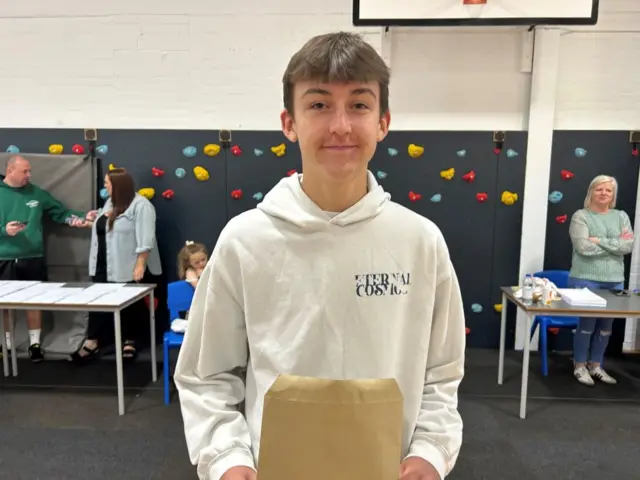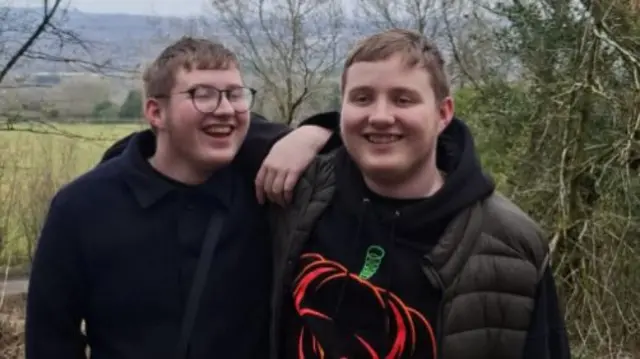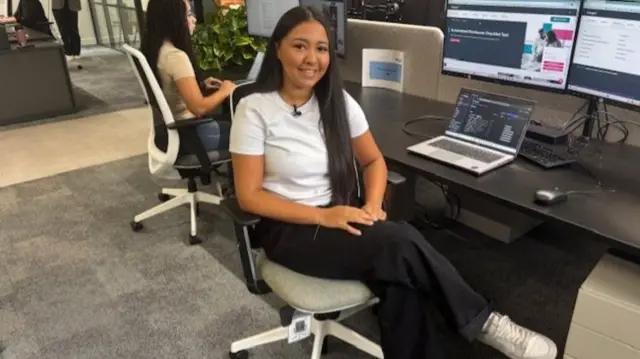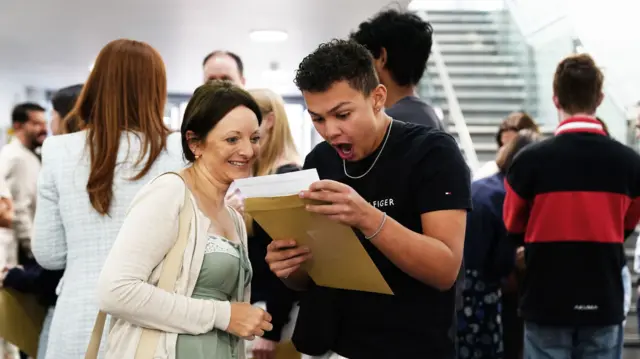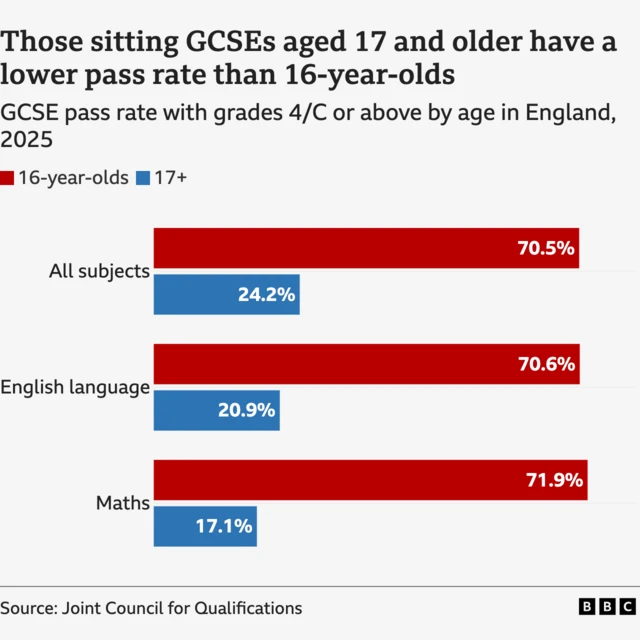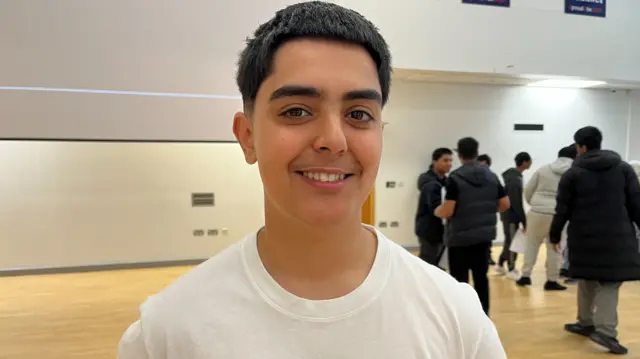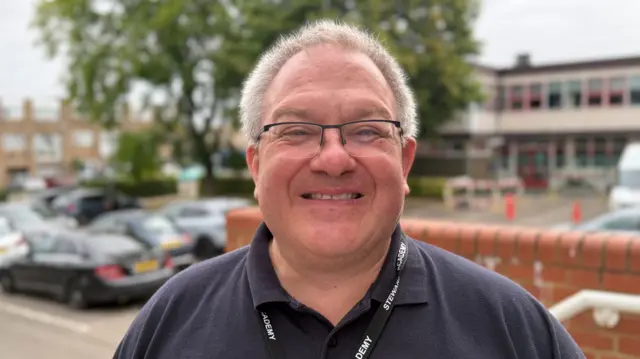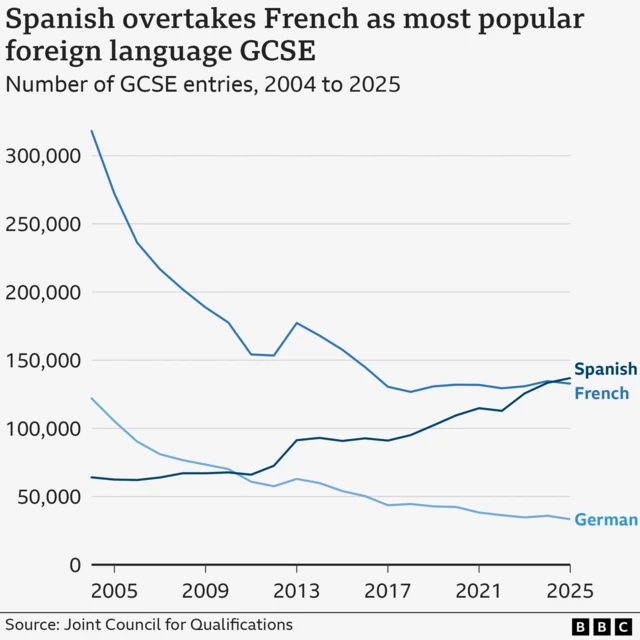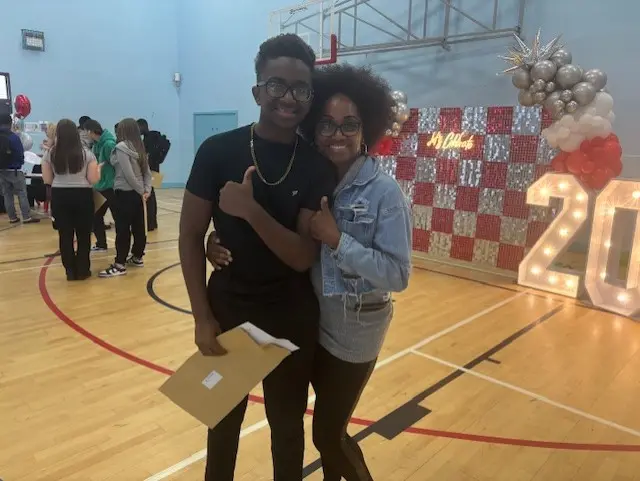'All the work has finally paid off,' teary student sayspublished at 15:08 BST 21 August
 Ben Price
Ben Price
BBC Wales reporter
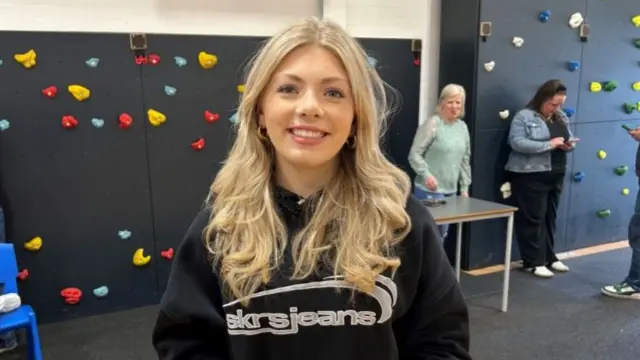
Gracie, 16, a pupil at Pen-Y-Dre High School in Merthyr got a set of A*s and As and says she was "so relieved".
"All the hard work has finally paid off," Gracie says.
"I was just in tears to be honest, just pouring it out finally and being able to release all of those emotions."
Sam, 16, a pupil at Pen-Y-Dre High School in Merthyr says: "It was the longest week of my life waiting, it took so long to get to sleep at night so I'm glad it's over."
"I didn't think I was going to pass most of the things I passed, but I was super proud because I got more than a C on most things, so I was just shocked with myself."
Sam is now going to Merthyr College to study Sports Coaching.
